Professional electromyography testing that pinpoints exactly what’s causing your muscle weakness, numbness, or pain.
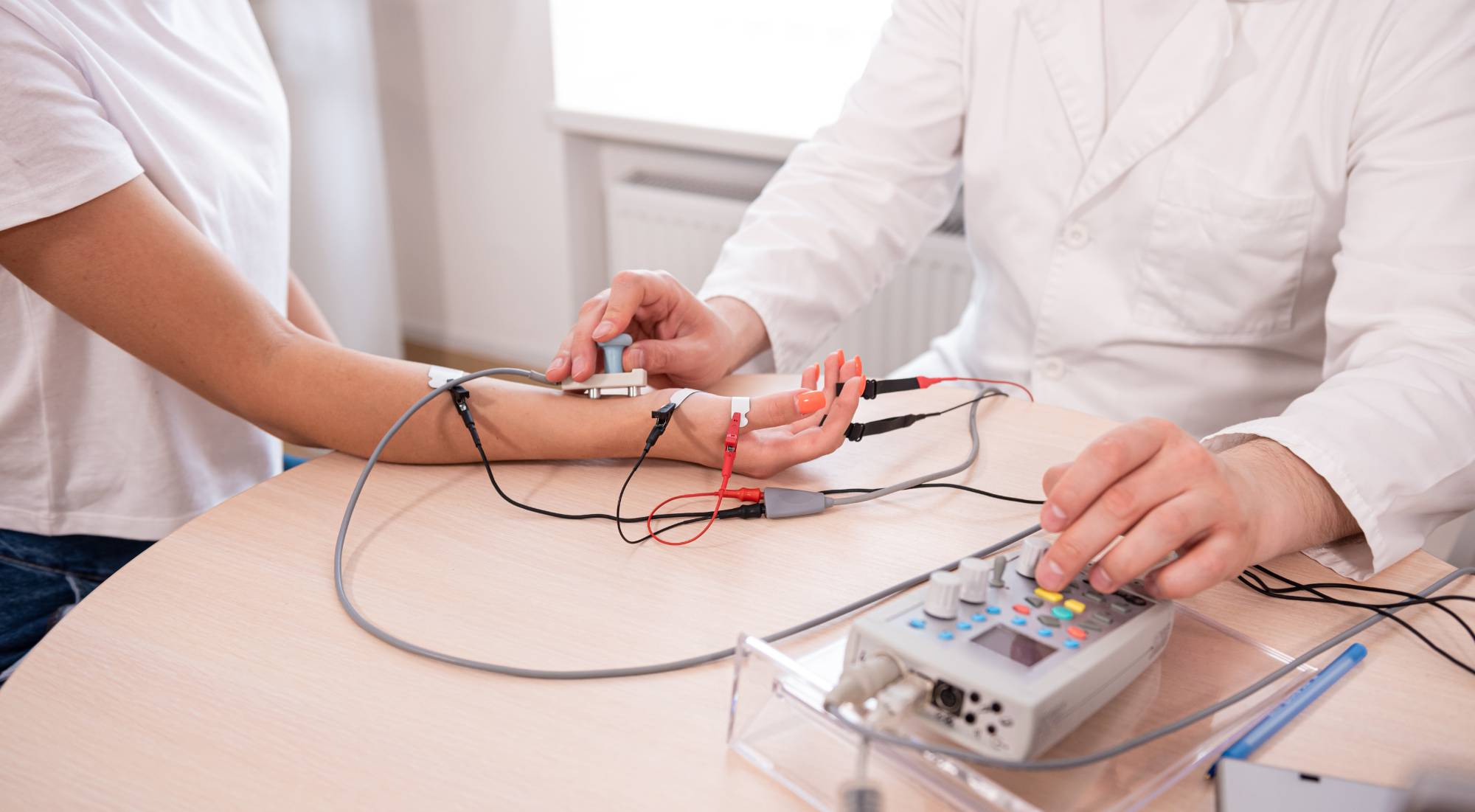
Reviews
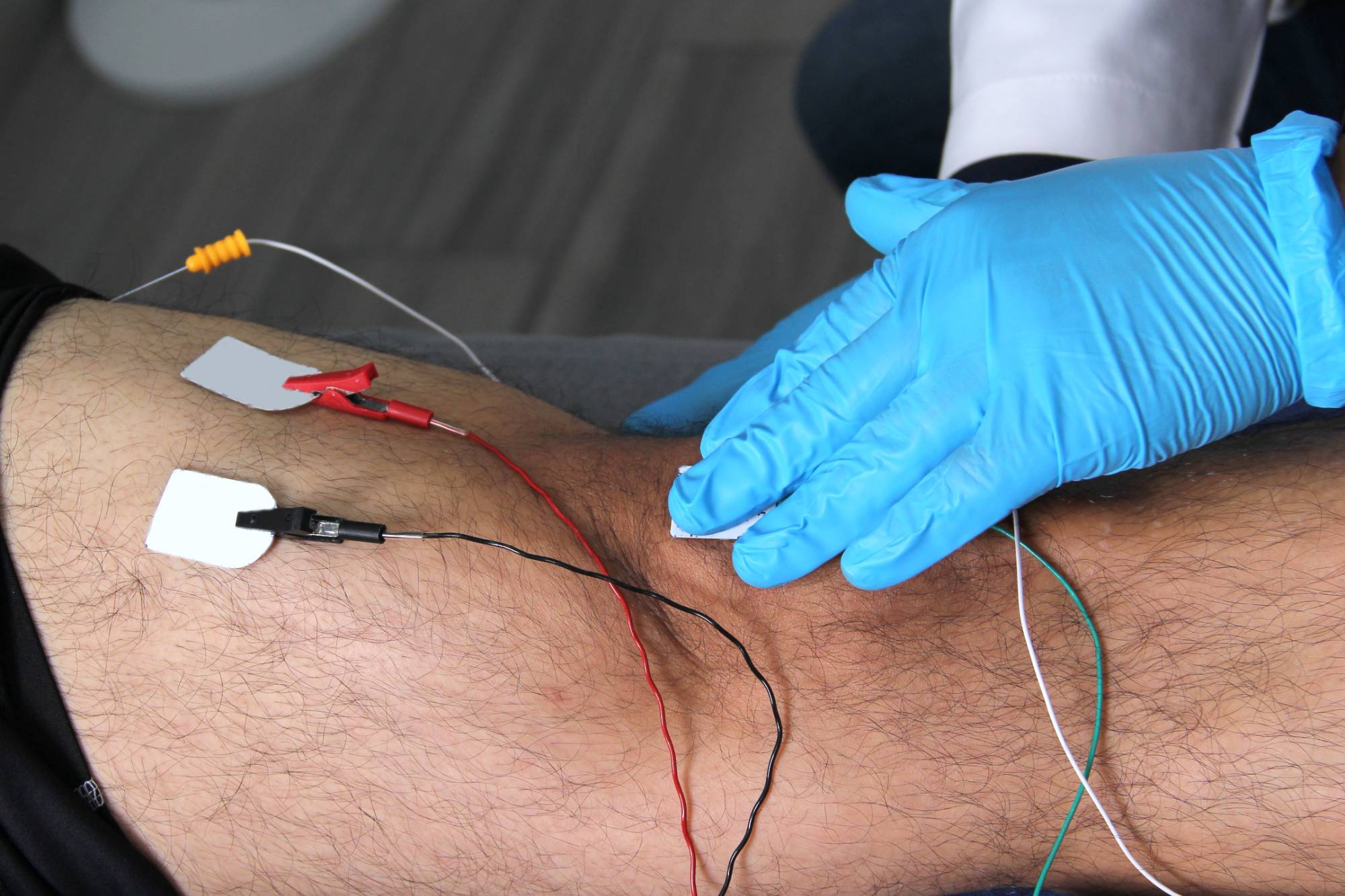
You’ve been dealing with unexplained symptoms long enough. That tingling in your hands, the weakness in your legs, the shooting pain down your arm – these aren’t things you should have to live with or wonder about.
EMG testing gives you concrete answers. Within 45 minutes, you’ll know whether your symptoms stem from nerve damage, muscle disorders, or conditions like carpal tunnel syndrome or sciatica. No more guessing games or “wait and see” approaches.
When you have a clear diagnosis, your doctor can create a treatment plan that actually addresses the root cause. You can move forward with confidence, knowing exactly what you’re dealing with and how to fix it.
NY Spine Medicine has been providing electrodiagnostic testing to Rossville and Staten Island residents for over a decade. Our team includes board-certified physicians specifically trained in EMG and nerve conduction studies.
We’ve performed thousands of these tests, working directly with your referring physician to ensure you get the answers you need. Our facility uses advanced diagnostic equipment that meets the highest medical standards.
You’re not just getting a test – you’re getting expertise that comes from years of helping patients understand and address their neurological symptoms.
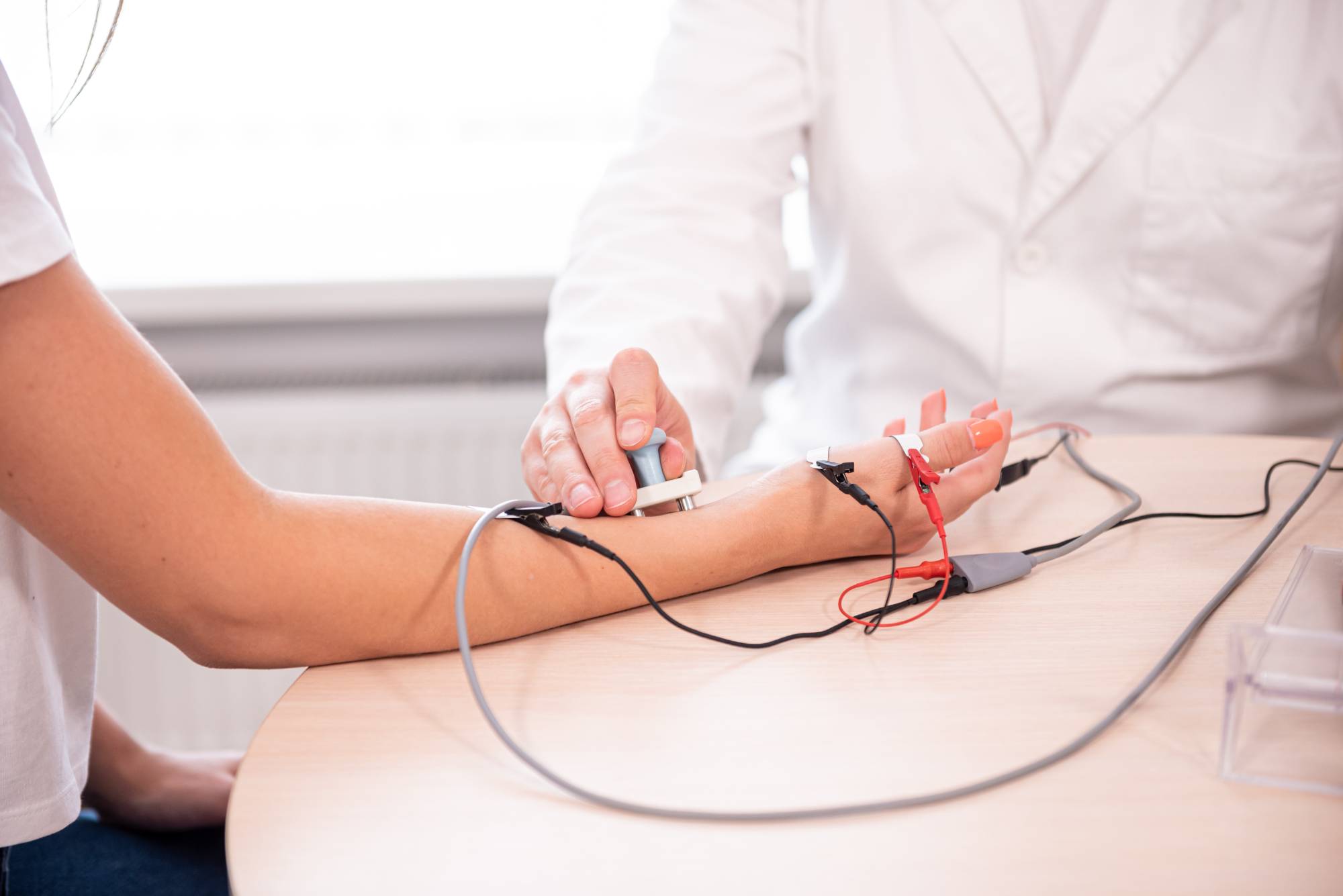
The process starts with a brief discussion about your symptoms and medical history. Our technician will explain exactly what’s happening at each step, so you’re never left wondering.
The nerve conduction study comes first. Small electrodes are placed on your skin, and mild electrical pulses measure how well your nerves transmit signals. This part takes about 15-20 minutes and feels like brief, mild static shocks.
Next is the EMG portion, where a thin needle electrode is inserted into specific muscles to measure electrical activity. You’ll be asked to relax and then gently contract certain muscles. The entire test typically takes 30-45 minutes, and you’ll receive your results immediately after completion.
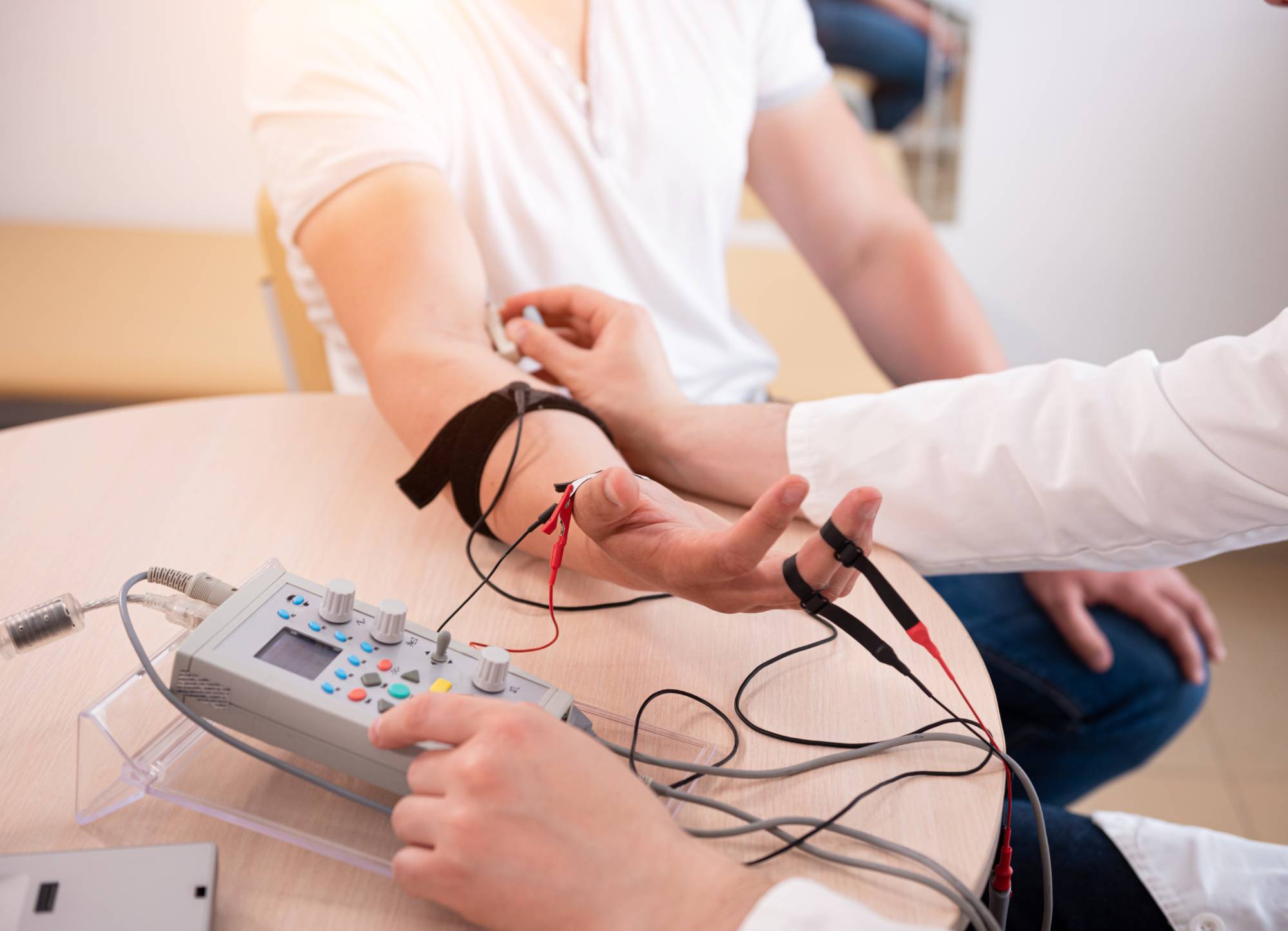
Ready to get started?
Your EMG testing includes both electromyography and nerve conduction studies in one appointment. This comprehensive approach evaluates both your muscles and nerves, giving your doctor the complete picture needed for accurate diagnosis.
The testing can identify conditions like carpal tunnel syndrome, ulnar neuropathy, radiculopathy, peripheral neuropathy, and various muscle disorders. You’ll receive detailed results that your referring physician can use immediately to develop your treatment plan.
Most insurance plans cover EMG testing when medically necessary. Our staff handles insurance verification before your appointment, so you know what to expect regarding costs. Same-day scheduling is often available for urgent cases.
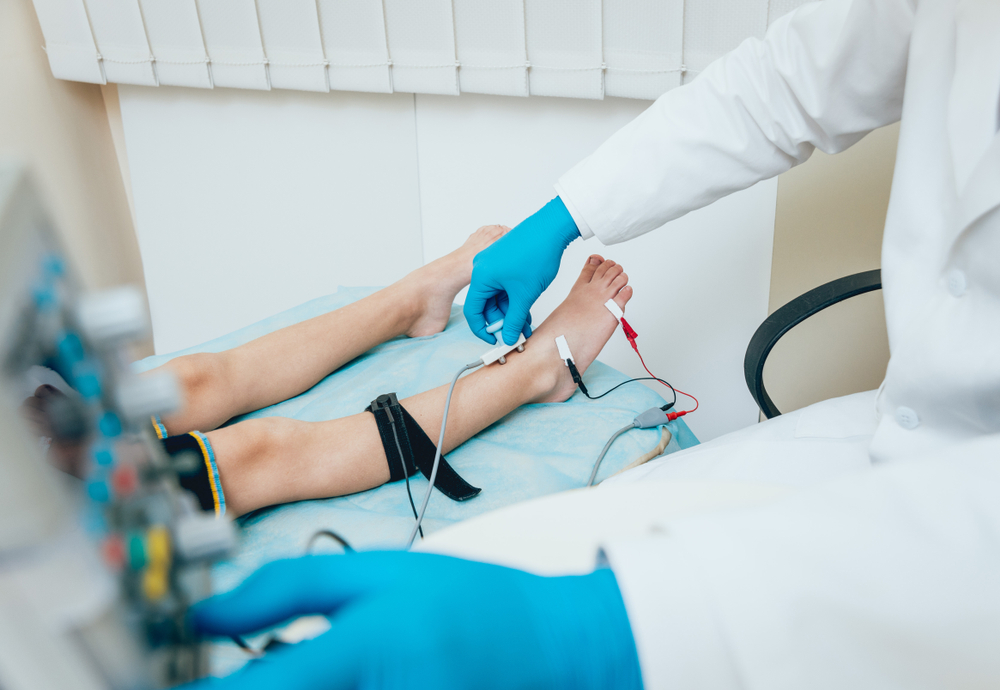
New York:
Florida:
Support